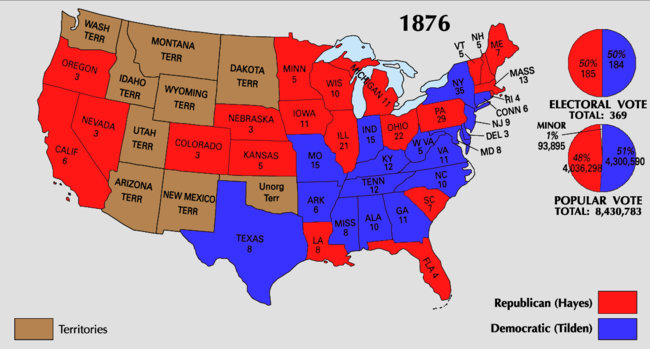No, the Republican Party is NOT the Party of Lincoln

The Republican Party was founded in 1854 in Ripon, Wisconsin, which not-so-coincidentally, was once a very liberal state that elected socialist mayors, governors, and presidential candidates, whose exploits are worthy of a later post.
Lincoln was, in fact, a Republican. He fought vehemently and often extended government power, famously suspending the writ of habeus corpus and announcing the Emancipation Proclamation while calling for constitutional reform that shepherded the 13th, 14th, and 15th amendments through Congress. Lincoln also created the first income tax, strengthened the federal banking system, and used federal funds for the Transcontinental Railroad and the settlement of Western farms. Ulysses S. Grant later fought the Ku Klux Klan in his administration and became heavily involved in the affairs of the Dominican Republic. Rutherford B. Hayes was an advocate of prison reform and feminism, while Chester Arthur vetoed the Chinese Exclusion Act and signed the Pendleton Civil Service Act. Benjamin Harrison signed the Meat Inspection Act, the Dependent Pension Act, the Sherman Antitrust Act, the Land Revision Act (which led to the creation of national forests), and other landmark legislation, while Teddy Roosevelt battled trusts and William McKinley advanced aggressive internationalism in the Philippines, Guam, Cuba, and Puerto Rico, the first truly modern presidency. Woodrow Wilson later advanced these policies in his doctrine of Wilsonianism as: a Democrat.
So when did the transition occur? The answer can perhaps be best found in the election of 1912. Each party tends to have a conservative and liberal wing, and William Howard Taft leaned conservatively while his former friend and ally Teddy Roosevelt was far more progressive. Thus a rift emerged in which Roosevelt led the Progressive Party to a second-place finish over Taft but behind Wilson, and the remaining liberals left the party.
This conclusion can be backed up by the presidencies of Franklin D. Roosevelt, Harry S. Truman, John F. Kennedy, Lyndon B. Johnson, Jimmy Carter, Bill Clinton, and Barack Obama.
So, no, if Lincoln were born today, he would more than likely join the Democratic party, not the Republican.
Comments
Post a Comment